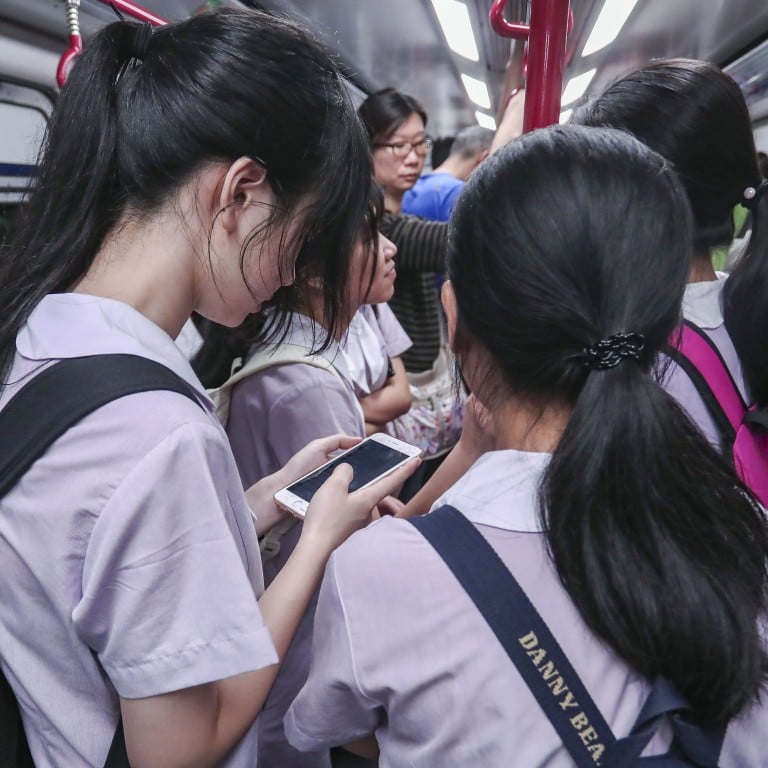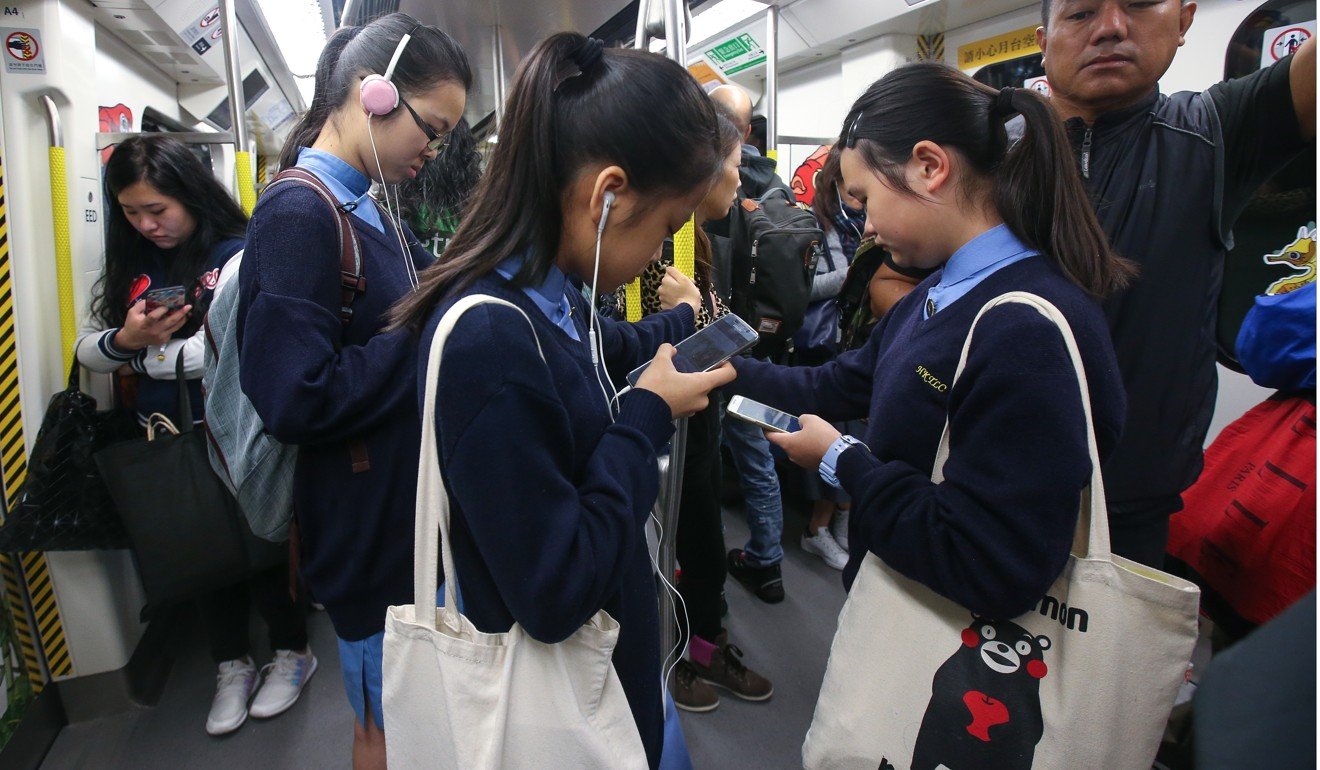
Hong Kong’s youngsters more glued to their screens than 2 years ago and their physical fitness is alarmingly low, study finds
- The ‘2018 Hong Kong Report Card on Physical Activity for Children and Youth’ paints a bleak picture for younger generation
- Parents also do poor job in limiting children’s screen time to below two hours per day
Children and teenagers in Hong Kong are more glued to electronic screens than they were two years ago and spend less time exercising with their parents, a study has found.
The physical fitness of local youths was also alarmingly poor – far behind many other places in Asia including Japan and Taiwan, Chinese University’s research suggested.
Experts behind the study called for a project to tackle issues including parents’ long working hours and academic pressure to improve the health of the city’s younger generation.
“The key message of our report this year is ‘active families, healthy kids’,” said Professor Stephen Wong Heung-sang, chairman of the university’s sports science and physical education department, who co-led the study.
“It’s time for us to reflect on whether we have sacrificed too much quality of life for economic advancement.”

Wong’s team, which released its findings on Thursday, analysed the latest data available for the study. The team assigned grades from A to F to indicate 12 performance levels of children in certain areas, including overall physical activity, organised sports participation, active transportation, sleep, obesity, community and environment, and government policies.
An A-plus grade meant more than 94 per cent of youths could achieve a certain goal while an F indicated fewer than 20 per cent met the standard, according to the “2018 Hong Kong Report Card on Physical Activity for Children and Youth”.
Kindergartens to close early for Lunar New Year amid deadly flu outbreak
The physical fitness of local youngsters was found to be poor, with an “alarmingly low” D grade, the same as mainland China, which was lower than many other Asian countries.
Japan scored A, Taiwan B minus and South Korea D plus.
Hongkongers also did a poor job in limiting children’s screen time to below two hours per day.
The score fell from a C in 2016 to C minus, while parental participation in physical activities with their children also deteriorated from D to D minus.
In the 2018 report, just 35.5 per cent of children aged 10 to 19 spent less than 120 minutes a day on a smart device, including for messaging, gaming, and watching television and movies.
In 2016, 58 per cent of boys and 61 per cent of girls aged between nine and 13 reported success in compliance.

Asked whether Hong Kong’s long working hours had affected parents’ opportunity to exercise with their children, Wong said: “There have been many discussions on parents’ post-work exhaustion, so we tend to believe that factor is real in Hong Kong.”
But he said no academic research had drawn such a conclusion. Wong also pointed to other factors including shortage of living space, and limited access to sports facilities in communities and schools.
“We need a social engineering project to change the situation,” Wong said.
Children spend 8 hours on screens, with 1 in 5 parents setting no limits: poll
Professor Mark Tremblay, president of the Active Healthy Kids Global Alliance, a Canada-based non-profit organisation that has brought the physical activity report card to 49 countries and regions, said part of the project could be a marketing campaign to raise public awareness.
“The concern, of course, is what we are passing on to the younger generation of kids,” Tremblay said. “They see their parents working long hours, sacrificing time with their family, sacrificing perhaps their health. That’s scary.”
Find right balance in use of smartphones
Ng Ching-kong, headmaster of Stewards Pooi Kei Primary School in Fo Tan, said parents were changing but it was not easy.
Starting after the Lunar New Year, pupils in five out of six grades in the school would get time for a daily nap and exercise would become part of their “homework”.
“We are collaborating with Chinese University to see if such measures will improve our students’ conditions,” Ng said. “And by using this form of homework, we hope the parents can participate more in regular physical activities with their children.”

